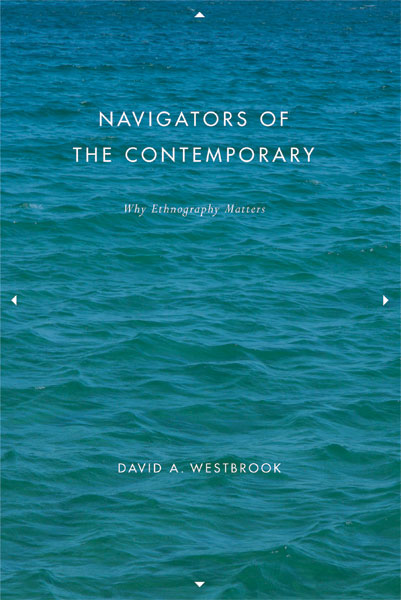Notes on the Book
This book grew out of years of conversation with anthropologists George Marcus and Douglas Holmes. We began talking about what the understanding of globalization set forth in City of Gold might have to say about key contemporary contexts for contemporary cultural anthropology.
This conversation developed in several main directions. First, and most obviously, how might ethnography, particularly as founded on conversation, be refunctioned and rethought to create a cultural anthropology of "present situations" such as central banking, as opposed to exotic islands? How might ethnography change, and stay the same, to confront the contemporary? Navigators has been read and taught as an effort to address, and as a base from which to think through, the question of what [should] constitute ethnography today? For me, however, the provisional delineation of "ethnography" led immediately to a second, more pressing, question: what would the status of such a discipline and such knowledge be, in the university and in the wider intellectual world? That is, defining a discipline, even provisionally, calls for a similarly provisional "map" of adjacent disciplines and their claims to this or that sort of authority. And here be monsters. More threateningly, as an outsider to anthropology, I asked why bother? The book thus became an inquiry into the joys and limitations of intellectual life -- here distinct from, maybe even opposed to, professional and especially academic life. (Needless to say, readers of |
the book, generally academic anthropologists, have failed to follow up on this latent, radical, critique. Almost all of us need a job, and so, as I've suggested, the book has tended to be read and taught in professional fashion.) That said, I think there are very good answers to the seemingly rude question "why bother with ethnography?" that is, ethnography really should matter, even to those of us who are not anthropologists. Answering the question, however, entailed a third, and for me the most important inquiry: what might ethnography offer for doing profoundly bureaucratic politics? That is, could ethnography further dreams of a politics of reason, dreams traditionally couched in terms of Enlightened hopes for republican democracy? At the same time, I was working on Deploying Ourselves, and it seemed, still seems, that while the Enlightenment was largely behind us, the best way forward was to take bureaucratic virtue seriously, and that ethnography could have a key role to play in that enterprise. |
Kind Words
"This book is the most convincing rendering of how to be a good anthropologist that I know of. It links the anthropological clearly to the broader intellectual enterprise. It offers up – after a long drought – a vision of anthropology very much of the sort that, in the heyday of Lévi-Strauss, Edmund Leach, and Mary Douglas, attracted me to it as a student."
-- James Faubion "An ethnographic sensibility allows us to remap, to provide a rather different cartography of modernity, the university, and the intellectual life appropriate to what he calls contemporary conditions." -- Michael Watts |
Publication Data
University of Chicago Press (2008)
Hardback ISBN-13: 978-0-226-88751-7 Paperback ISBN-13: 978-0-226-88752-4 |
Purchase
NOTE: No footnotes! I'm unduly proud of that. This is an easy read, at least at first cut, which I'm told makes the book fun to teach. |
